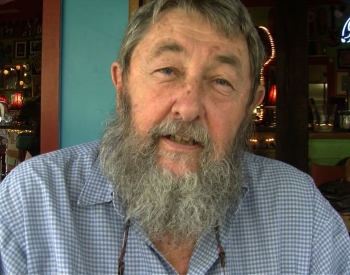As they sweat on the results of the long drawn out post mortem over Labor’s loss in the unlosable election, the warlords are already staking out their own positions.
The feeling seems to be that since a protracted series of blame games are inevitable, a least they can make a pretence of moving forward, even though they are in fact moving backwards.
And nowhere is the retreat more retrograde and dispiriting than the demand that the party of progress should abandon its long term targets on climate change and succumb, yet again, to the Government’s manifestly inadequate agenda.
Such right-wing luminaries as Member for Hunter Joel Fitzgibbon and Deputy Opposition Leader Richard Marles are now suggesting that capitulation would help things along in Queensland and Western Australia. Their rationale appears to be that the Labor votes were down in both and since the two are traditionally designated as the mining states, forgetting about emissions would bring the punters flocking back to the fold.
The logic is patently absurd. While Labor mishandled the Adani issue and Bob Brown’s quixotic caravan of protest did not help, the real problems in Queensland were Clive Palmer, Pauline Hanson and the monopolised Murdoch media — none of whom would have moved a nanometre if Labor’s target for emissions reduction was 45 per cent, 28 per cent or zero.
But hey, you have to blame something and it sure as hell isn’t going to be us. So the so-called policy relies essentially on self-preservation — a mixture of timidity and perversity.
If it were to be implemented it is not clear how it would play out, but the lessons from history is not promising. And not even ancient history — it is only a little over ten years ago that former PM Kevin Rudd walked away from what he once called the "great moral challenge of our times" and put his own ambitious plans for climate change on the backburner.
Dumping what was seen as a core belief – a principal point of difference between Labor and the Coalition – caused a slump in his Government’s support and the resulting polls, both public and private, provided the excuse the recalcitrant faction bosses needed to replace him, leading to all the instability and vendettas that followed.
The heavies of Sussex Street and beyond were not interested in climate change — their idea of a moral challenge is grabbing the last dim sum from a long lunch in Chinatown. But the rank and file and the swinging voters saw Rudd’s defection from the cause a betrayal, not only because most of them believed in it, but because it showed that when the pressure was put on him, he was just another political opportunist — one who preferred expediency to principle.
And this is precisely the risk Albanese is already accused of — that he stands for nothing, that he is driven by the polls and the focus groups, and thus is not worth supporting. He has got away with caution and moderation to date, but climate change is the big one; and will become more urgent as the extreme weather and the passionate politics become more intense.
If self-preservation is really involved, he needs, this time, to hold firm. It may be a long way to the next election, but tapping the mat on this one could be irreparable.
Mungo MacCallum is a veteran journalist who worked for many years in the Canberra Press Gallery. This article was published on 'Pearls and Irritations' and is republished with permission.
Support independent journalism Subscribe to IA.












